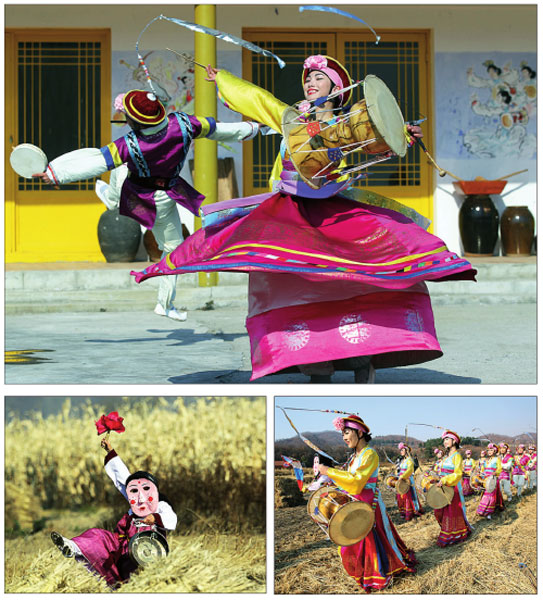Jilin's jewels worth the journey
In the eastern part of the province is the little-known Yanbian Korean autonomous prefecture, which includes Wangqing county and Antu county and is home to China's Korean ethnic group.
After a long and bumpy drive through endless corn fields punctuated by the occasional farms I spotted flags flying and people wearing brightly colored clothes.
As I walked across the field and got closer I heard the sound of drums, gongs, the oboe-like suona and happy voices chatting in a Korean-sounding dialect.
The group launched into a loud and lively performance of the farmers' dance of China's Korean ethnic group, a traditional act to pay homage to nature and pray for a plentiful harvest.
The traditional performance-named the farmers' festive dance by local people-has been passed down for generations and is still an important part of community life, with children and adults of all ages taking part.
The dance was included in the representative list of intangible cultural heritages by United Nations Educational, Scientific and Cultural Organization in 2009 and is just one of the area's unique features.
Similar Korean townships dotted across the region showcase other distinctive cultural practices but they are often unassuming and tucked away down dusty tracks.
In Yulou village, a small, humble wooden hut is home to a provincial-level cultural treasure falconry center, which protects the area's birds and falconry traditions.

















